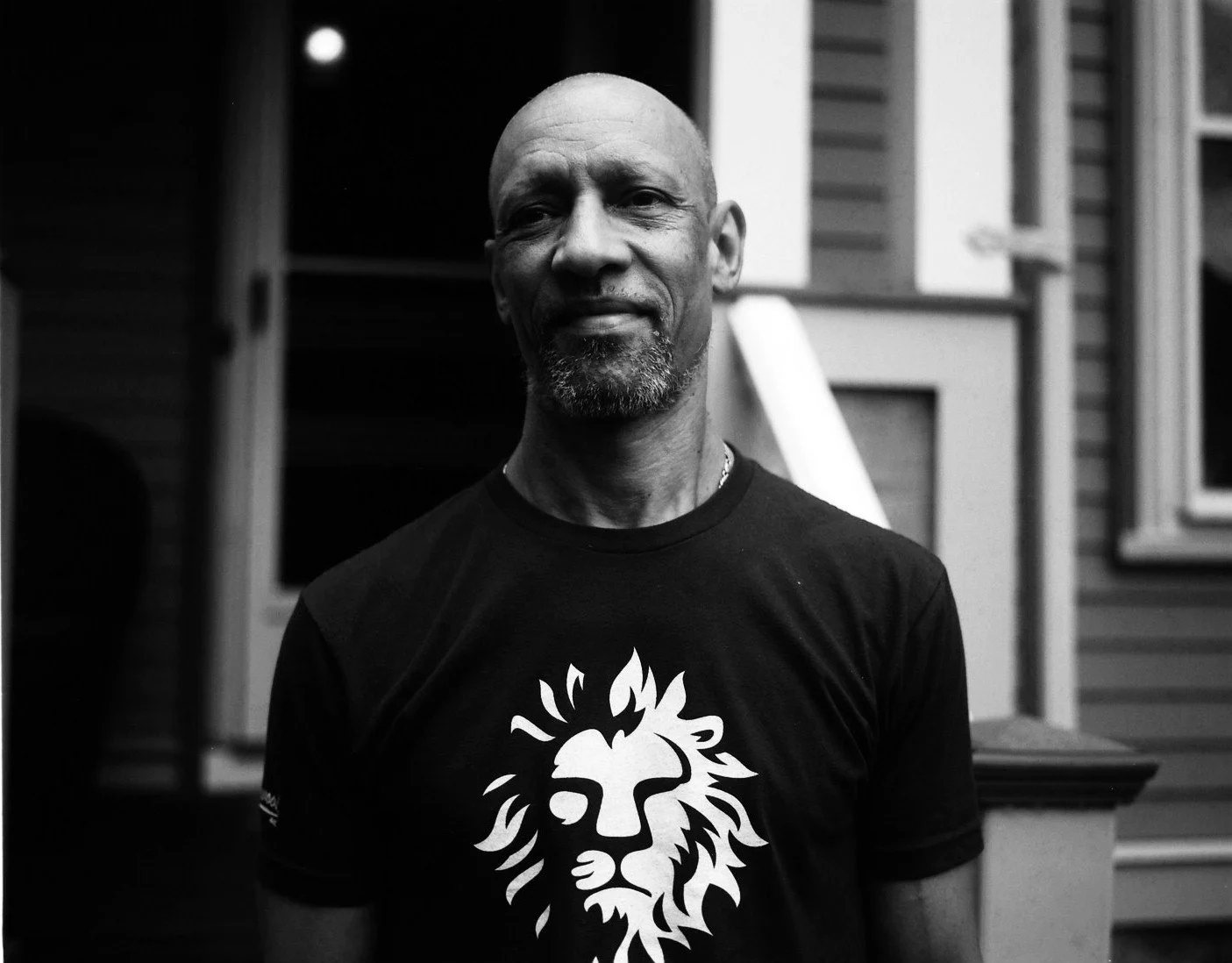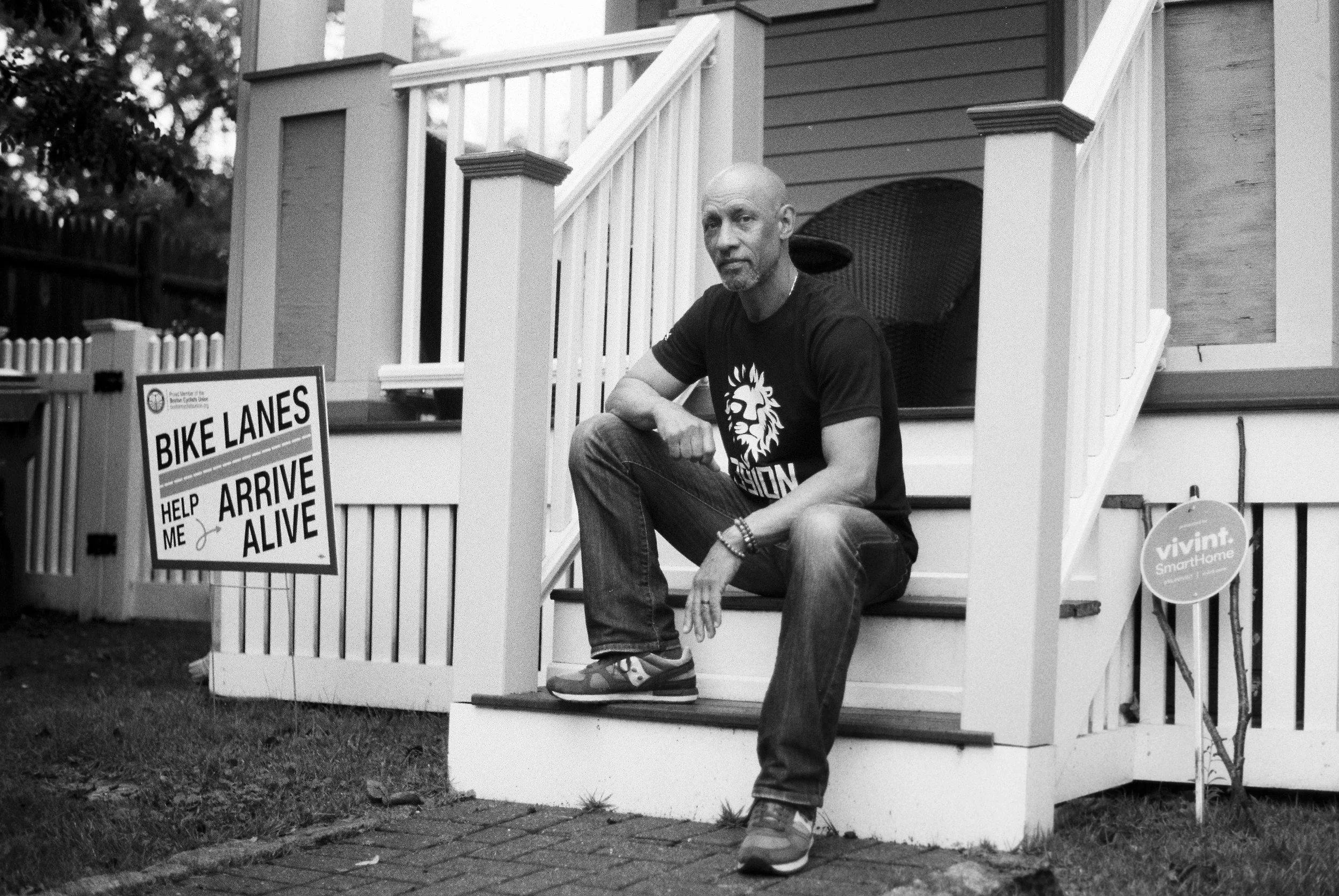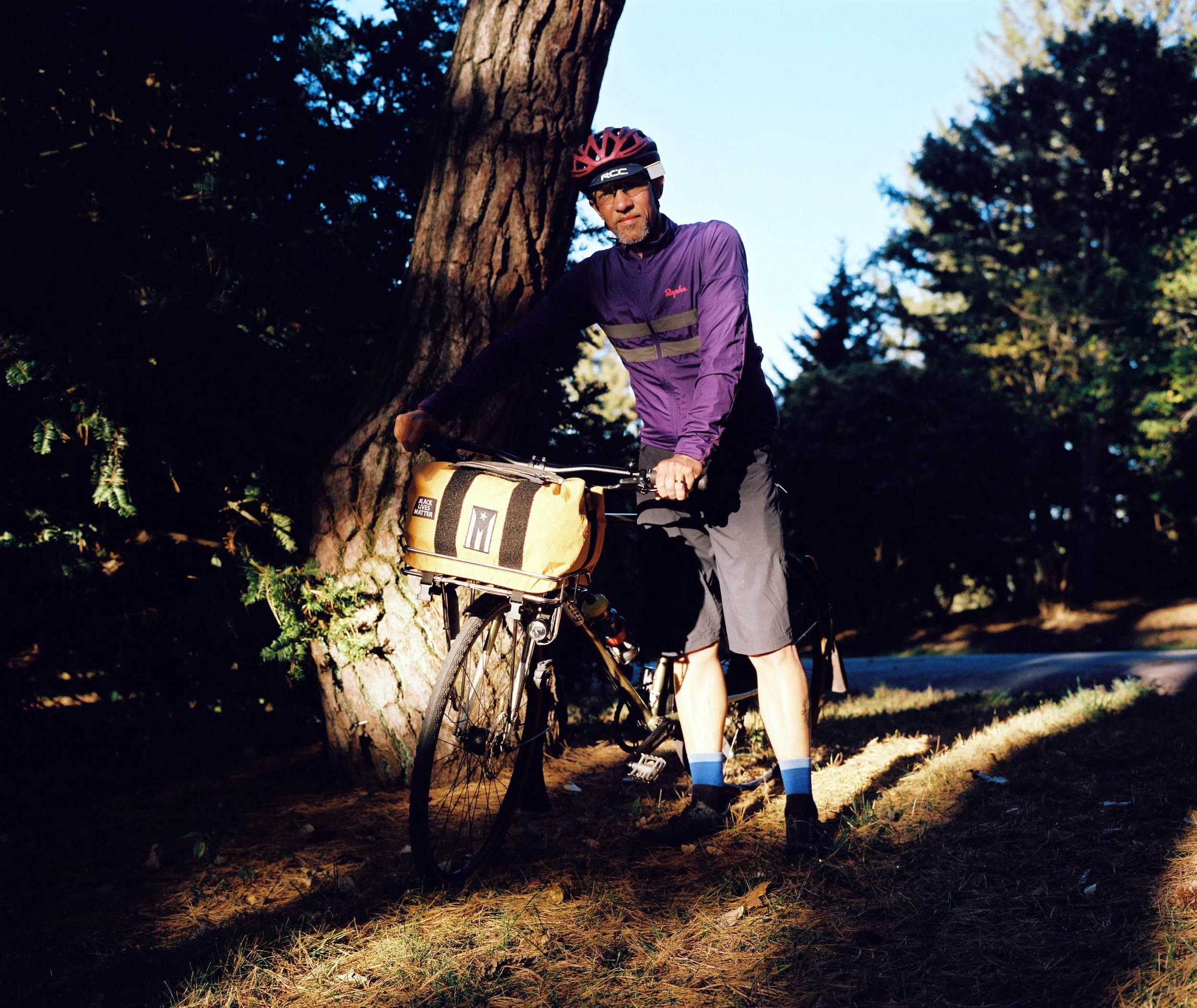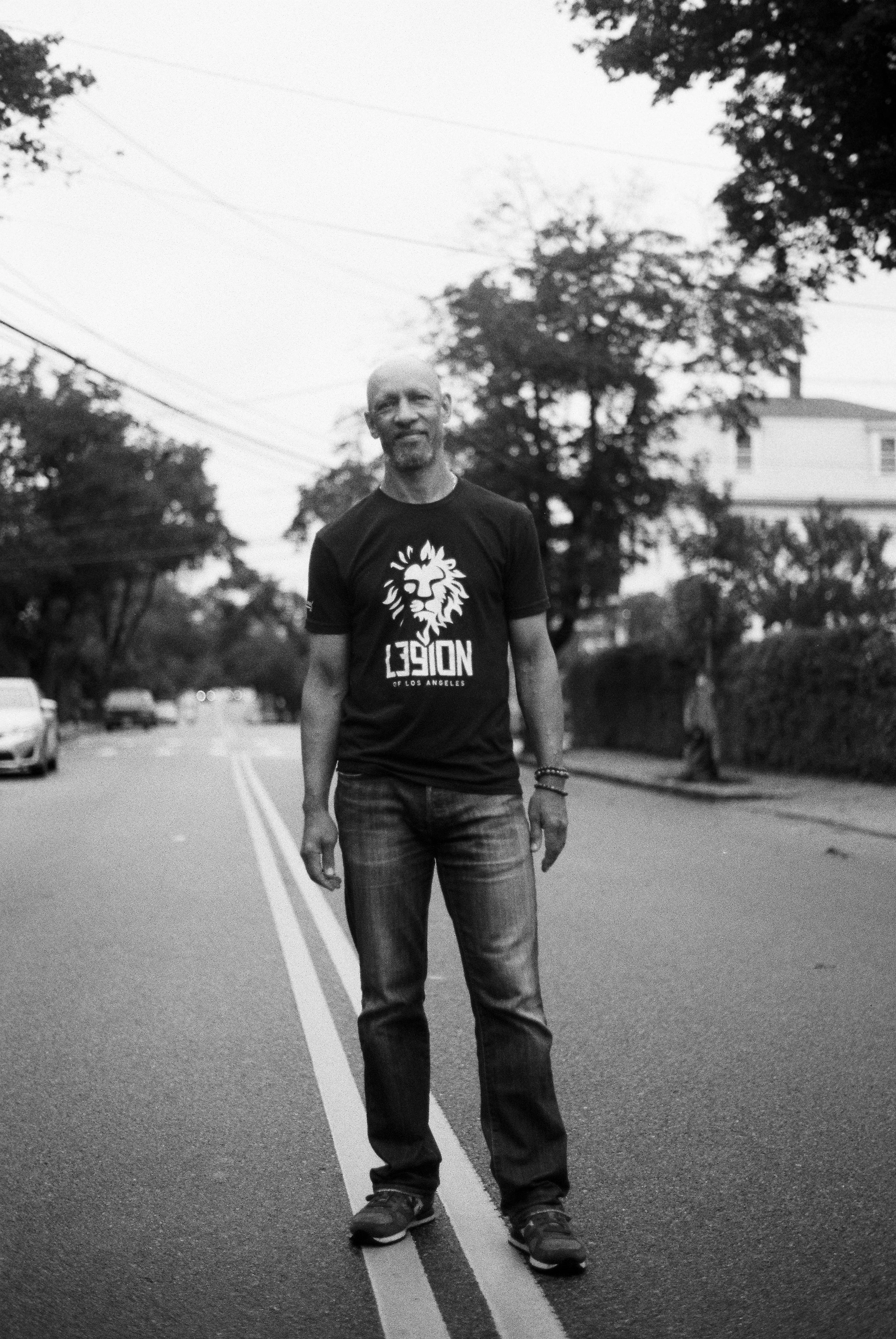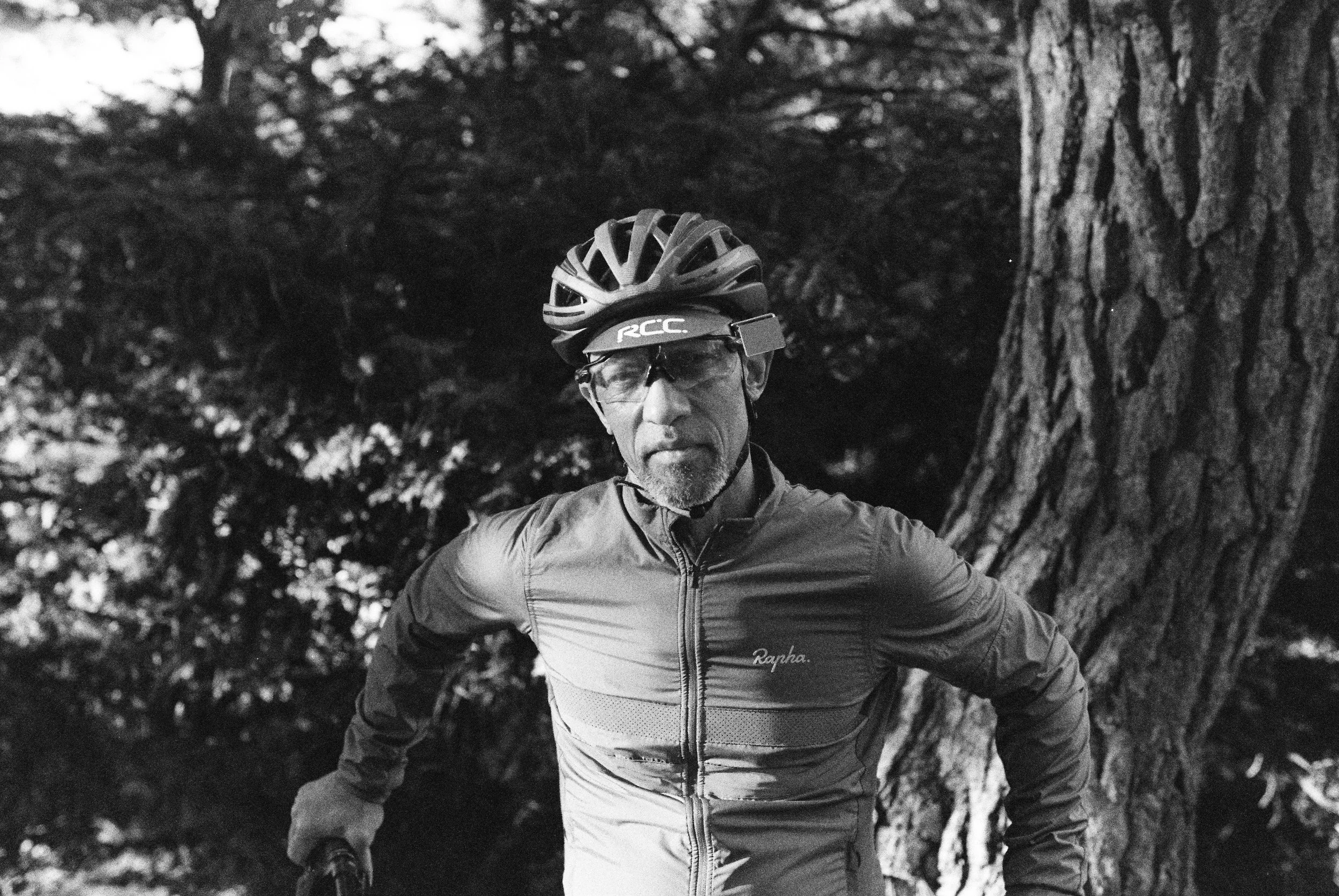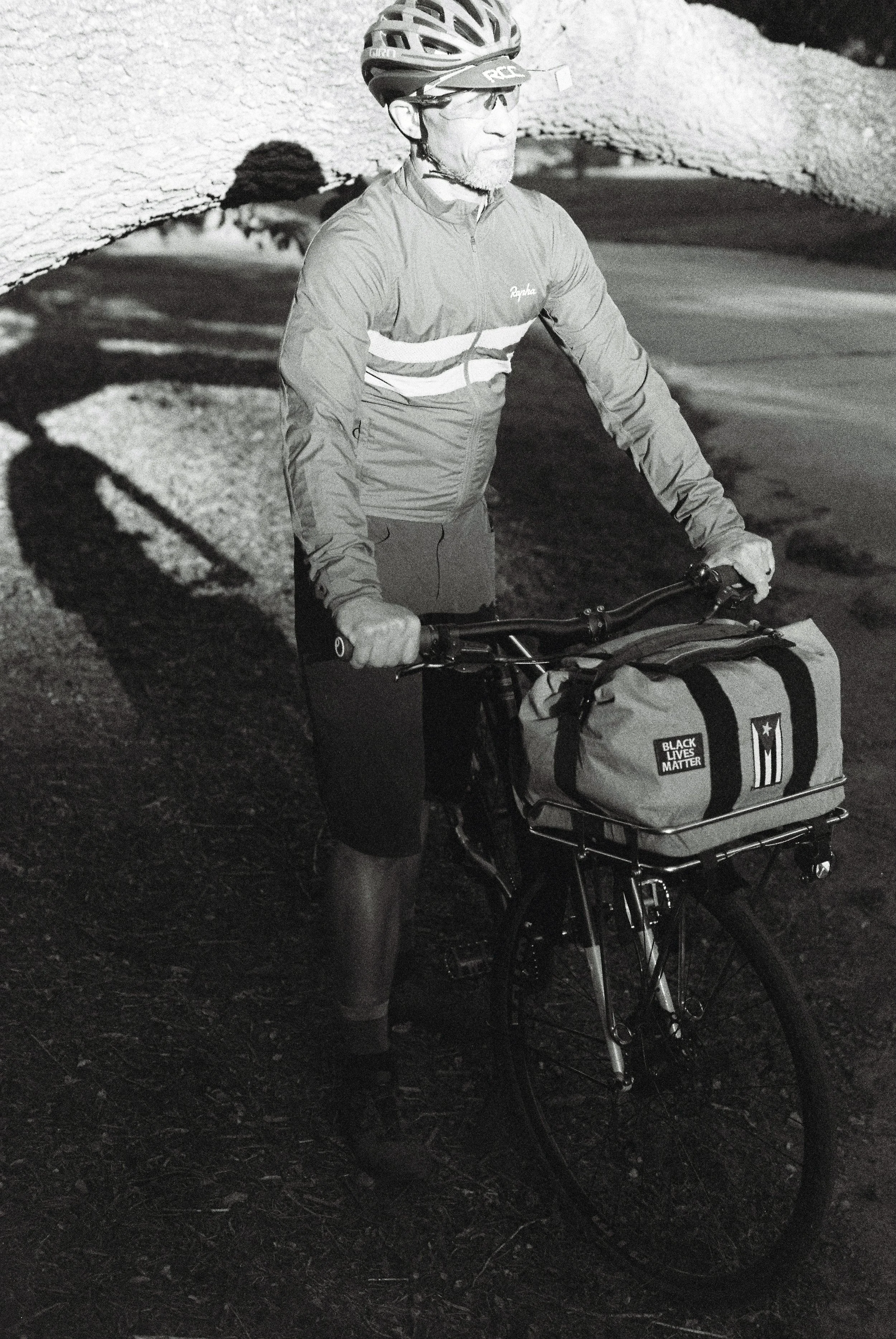Meaning | Marco Curnen
Peace and Poetry Through Pedaling
What is this about? Who would actually want to read it? Who am I? Am I Black? Brown? Mixed race? A woman? Queer? Non-binary? Do I speak other languages—maybe even in addition to English? How do the perspectives shared here resonate with how I view/experience the world?
How would you, as a reader, answer these prompts: I use my bike to get to work, pick up groceries, or transport my children. I enjoy a recreational ride from time to time on the bike path or in the park. I could be called a “try-hard,” spandex-wearing roadie on my carbon racing bike. I am a committed gravel rider, randonneur, or mountain biker, eager for my next ride. I don’t even ride a bike. Something else, or some combination of the above?
This is a brief essay—really a reflection—on how who I am is inseparably shaped by my time on my bike. I hope you enjoy the “ride.” If not, I hope I’m not wasting your time. More than anything else, please don’t take what is written here too seriously.
I recently had an engaging conversation with a cycling acquaintance—just casual reflections on riding bikes. Unexpectedly, it turned into a fascinating (at least for me) synthesis of how my connection to bicycles bridges so many areas of my life: physical and mental health, relationships, community, nature and the environment, social justice, and yes, even bicycles themselves. This piece is meant as a synthesis of those observations: how this “magical” engineering marvel is integral to who I am and how I experience the world. By the end, I’ll try to connect back to the “poetry” promised in the title.
Who am I? Why does this matter? Who cares?
Like life itself, bike riding and its wide range of communities can reinforce both healthy and unhealthy boundaries. As a human raised by a Puerto Rican mom and white/Anglo dad, I’ve had more than five decades to think about the communities I identify with, am welcomed into, or excluded from—whether through appearance, language, or more subtle signals.
For example, because I only learned Spanish as an adult, I’ll never naturally have the accent that instantly identifies “where I’m from.” As a school-age child, I remember feeling angry while visiting my cousins from the Island because I couldn’t understand what was being shared and laughed about. In school, I never crossed paths with these same cousins because they were in a different track, learning English. While not necessarily anyone’s “fault,” this missed opportunity has always impacted me as I navigate the cultural and linguistic world that includes identifying as Puerto Rican and speaking Spanish. While I (now) can communicate, understand, fight, and hopefully love in multiple languages, the ever-present ¿De dónde eres? already carries assumptions about identity and belonging. If I don’t speak with a certain accent, does that mean I’m not _______ (fill in the blank)? Challenging these assumptions has become a life-long journey; both humbling and inspiring.
Cycling has its parallels. Riders are welcomed—or excluded—in countless ways. For too long, the racing community has projected “norms” that aren’t welcoming to all: mainstream cycling as white, male, riding a $10K bike, wearing the right brands, dropping people unceremoniously on group rides, not terribly friendly to strangers. Some activist cyclists take to pounding on car panels when they feel threatened. Bike-share riders sometimes flout traffic rules.
And yet—the richness and diversity of bicycling is everywhere if you pay attention. Critical Mass and Bike Party rides bring together every walk of life imaginable. Commuters come in all shapes, sizes, and setups, whether practical or technical. Weekend warriors hail from the Bahamas, Barbados, Cape Verde, Ireland, Bolivia, or right here in Roxbury and Dorchester. Major Taylor clubs enrich cycling experiences across the U.S. and beyond. Gravel riders share their love for nature on finely tuned machines or decades-old rigs.
What makes bicycling special to me is that I speak bike. Since the day I was given my first bike at age six, I’ve been part of this community—through the physical marvel itself, through the people who love it, and through refining my own “accent” as a cyclist and quite frankly, challenging assumptions. I find peace in a solo ride and camaraderie in the many permutations of riding together. That’s where the magic happens.
There is something unique about the context of bicycling.
The mysterious reality of the physics of riding—balance, momentum, force—has, as I understand it, never been fully explained. My generous interpretation of this mystery overflows into my daily experience. On my commute, I regularly notice smiles from toddlers in strollers, dog-walkers, or strangers passing by. I’m convinced that the calm bicycle rider conveys an openness and connection that rarely occurs elsewhere. Riding is non-threatening, non-polluting, and non-noisy.
In my work as a public school assistant principal, I draw inspiration from my time on the bike as I strive to do my best work each and every day. This includes making sure to authentically “see” every student for who they are, starting with knowing their name(s). Working in a dual-language school (Spanish & English) also matches with my own beliefs and personal stance on the value added by understanding multiple languages and the additional perspectives one gains as a result. Lastly, the gift of space (psychological, physical, time) on my daily commutes reinforces my self-reflection skills including knowing when to actually slow down in order to work through challenging dilemmas. As I travel through multiple neighborhoods and natural spaces, I stay grounded in the diversity of the world that I try to leave a little bit better each day.
The balance of speed, effort, and presence creates space: for authentic conversation with another rider, for acknowledging a stranger, for noticing the wind or a patch of sunlight. I’ve had countless conversations on the bike—about relationships, raising children, injustice, culture, language—that I doubt would have happened in a car, on a walk, or on a run. My regular three-hour rides function like therapy.
I experience nature—sometimes called “forest bathing”—in deeply rich ways. Riding through the Arnold Arboretum or along wooded paths, I prepare for my day in the morning and decompress at its end. These rides ground me, connect me to the seasons, tune me to weather patterns, and ultimately keep me mentally healthy. I can let go of whatever burdens me at the base of my favorite tree. Only riding my bike gives me this option.
Of course, cycling sometimes attracts the obsessive personality. You know the type: endlessly talking about mileage, average speed, watts, Kudos, or the latest technology—electronic shifting, drivetrains, hand-made tires. I admit it: I have three bikes. Still, no matter how obsessive the gear or stats can get, riding keeps me balanced. It slows me down, keeps me aware of my surroundings, provides thinking space, and supports my physical and mental health.
This is one essential part of my life where I can say, without hesitation, that I am fully comfortable. I identify with the many cycling communities I belong to. I speak bike, and no one can take that away from me. I feel blessed to share this world with so many interesting, gifted, thoughtful, generous, and caring people—even the ones who wear Rapha.
Recently, I came across a description of an author’s work that captures how I feel on the bike. Writer Steven Barnes praises the fiction of Tananarive Due (his partner) as “adding meaning to the chaos of life.” He describes her poetry as a “world of meaning” we create out of daily existence—not just to survive another sunset, but to find pleasure and beauty, to spin gold from the straw of our lives.
For me, riding a bicycle does just that. Whether I’m commuting, speeding along a country road, or navigating roots on a wooded trail—whether I’m greeting my favorite tree, noticing the smell of blossoms, or catching the light of a rising sun—I’m reminded of life’s meaning. Legs moving, gears turning, air flowing, and smiles exchanged along the way: these are moments of poetry revealed through daily motion.
Quite simply, riding a bike opens my eyes to the meaning that would otherwise be hidden by the routines and chaos of daily life. In short, I am wholly and completely who I am because of the magic bicycling brings me.
Marco is a father of three grown children, a K-8 assistant principal who cares deeply about young people, and a loving spouse who always has room to improve. A decades-long resident of Hyde Park in Boston, Massachusetts, Marco feels most at home in his diverse neighborhood while regularly enjoying family visits to Guatemala. He is a passionate cyclist who enjoys spending time on two wheels—alone or with others—at any pace that is convenient.
Written by Marco Curnen | Photography by Chessin Gertler

